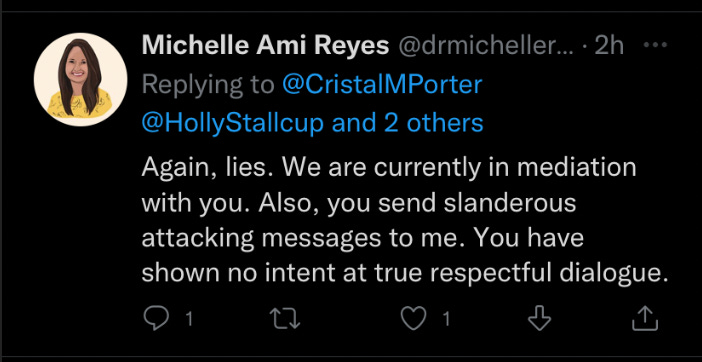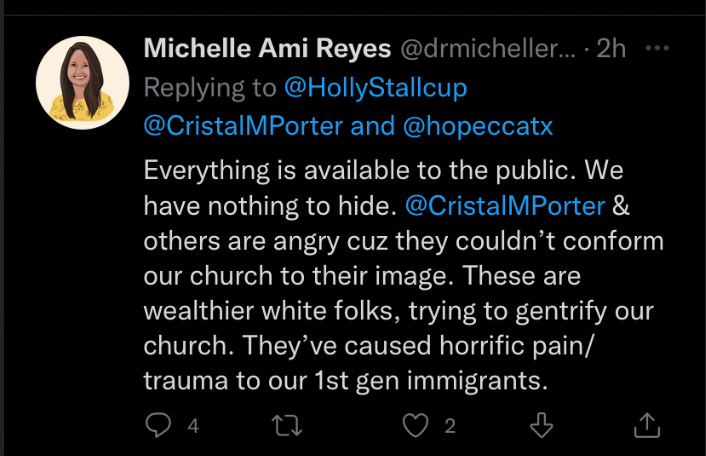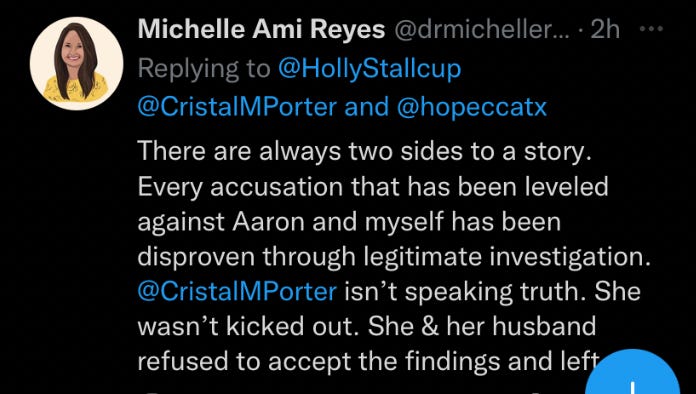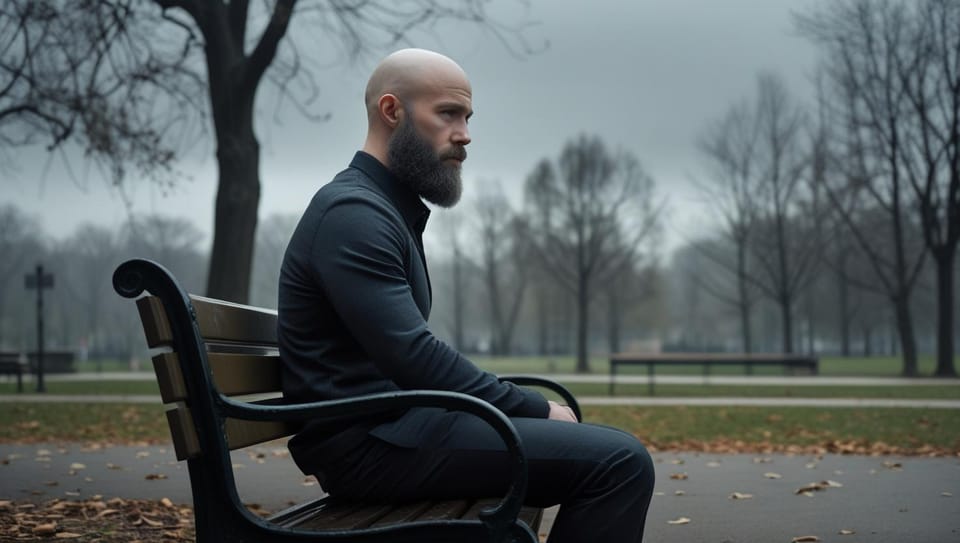The Tragic Consequences of Celebrity Christian Culture at Hope Community Church

On June 17, 2022 I decided to break my silence regarding the abusive patterns I experienced at the hands of the elders of Hope Community Church. You can read more about my experience here:
My Experience of Spiritual Abuse as a Pastor at Hope Community Church
Thanks for reading Faith Reanimated! Subscribe for free to receive new posts and support my work.
The biggest piece of constructive feedback I’ve received since writing my article is how I give explicit examples regarding the actions and words of the elders at Hope, but am thin on how Dr. Michelle Reyes played a hand in creating this toxic culture. I’ve debated with myself for weeks processing if I should write a follow-up article unpacking Dr. Reyes’s role in perpetuating the abusive culture that persists at Hope. After much deliberation I’ve come to the conclusion that the role Michelle has played through her personal platform should be brought to light for two reasons:
- I hope my account of Michelle’s role supports the brave ex-congregants who have spoken out about the toxic behavior of the church’s leadership.
- I continue to hold out hope that repentance and justice may bear fruit in the midst of this horrific ordeal.
So let me begin by asking a question…
What is a Celebrity Christian?
Celebrity Christians can be understood as pastors, worship leaders, ministers, or anyone who claims to be a Christian and targets Christian audiences for the purpose of building an individual platform. Despite attaching the word celebrity to anything related to following Jesus as being completely antithetical to literally everything Jesus taught, the sad reality is celebrity culture is a thing within Christianity.
The clearest issue with Christian platform and celebrity status-building is it centers the individual over Jesus. For anyone who claims to follow Jesus, this is incredibly problematic because it’s a complete contrast to Jesus’ teachings. In its simplest form, it is an oxymoron. Professor Scot McKnight explains it this way:
“The church has one celebrity — His name is Jesus. Everyone else is called a servant.”
- Roys, Julie [@reachjulieroys]. (2022, July, 28), @ScotMcKnight calls out the celebrity culture rampant in churches [Tweet].
Most often when churches support a Christian’s pursuit of a personal platform or celebrity status the justification has more in common with Reagan-era economic policy than anything found in the Bible. Specifically, what I mean is, Christian celebrity is often justified through a type of “trickle-down economics.” The idea is as the individual’s platform grows, the trickle-down effect will be a net positive for the church through increased: awareness of the church’s existence, Sunday attendance, tithes, etc…
I bring up Celebrity Christians because it is this exact strategy that was aggressively pursued during my time as a minister at Hope Community Church. In particular, it was the play being run by Scholar in Residence, Dr. Michelle Reyes. What few are willing to discuss in the Christians-as-celebrities conversation is the dark shadows and tradeoffs that come as a result of pursuing an individual platform. At Hope Community Church the dark shadows the congregation experienced at the hands of Dr. Reyes are dishonesty and disconnection.
Dishonesty
So much of how a congregation benefits through a Celebrity Christian comes by way of free marketing/recruitment of new church attendees. This is simply a truism. What makes Hope’s situation unique is this strategy is the primary growth strategy of church leadership. If you asked the average Sunday attendee at Hope how they heard about the church they’re likely to respond that it was by way of Michelle via a podcast, social media, conference, article, or book.
Rarely, if ever, do you hear anyone new coming to the church through any sort of grassroots effort. New attendees are not coming based on the invitation of a friend, the church’s engagement in the community, or any tangible local means. New people come almost exclusively through some digital means.
Mind you, people finding out about a church through digital means in the 21st century is hardly something to gawk at. However, in Hope’s case, the issue with this strategy is it’s rooted in dishonesty.
Dishonesty about Hope
How Dr. Reyes portrays herself and Hope digitally is dishonest to both of their realities. I’ll also show how Dr. Reyes’s pattern of dishonesty extends toward her church’s congregants when she is confronted with congregant hurt. Whenever Hope is discussed via her platform, Dr. Reyes (and Pastor Aaron Reyes) generally introduce the church as a “diverse, multi-ethnic congregation serving the marginalized in East Austin.” In my experience, and the experience of multiple congregants this description is aspirational at best, but nowhere close to being based in reality. This particular issue came to a head during my tenure on the staff in November 2021 when multiple congregants took issue with how Hope was misrepresented in a podcast interview Aaron and Michelle did with Carey Nieuwhof on Church Pulse Weekly. Toward the end of my time on staff, upwards of a dozen congregants and staff expressed their frustration with attending Hope based on the premise of the church’s culture they heard about from Dr. Reyes and Pastor Aaron online. From anywhere between a few weeks to a few months these congregants were left confused and frustrated to find the reality of the church was far from the narrative Dr. Reyes had portrayed it as through her platform.
Dishonesty about Her Qualifications
Along with being dishonest about how she portrays Hope, Dr. Reyes is also dishonest about her qualifications. I vividly remember a conversation over lunch with Michelle’s husband, Pastor Aaron, where he shared how Michelle has had so many writing and speaking opportunities open up for her in evangelical spaces because she has a Ph.D. Outwardly, Michelle portrays herself as an expert in cross-cultural ministry, engaging systemic injustice, and racial justice. One simply needs to read the bio page of her personal website to see how prominent she makes her cross-cultural/justice endeavors.
The assumption for many is because she has a Ph.D. and writes on cross-cultural/justice topics these must be her areas of expertise. They are not. Her Ph.D. is in medieval German literature. To be clear, I’m not trying to take away or discredit by any means the validity, effort, and hard work she has put in to earn her Ph.D. My issue is expertise in one area doesn’t mean expertise in every area.
Again, the issue revolves around presenting herself one way in digital spaces that are inauthentic and incongruent with reality. When Celebrity Christians build a platform based on the experience they don’t actually have, and portray their institutions in a way that is dishonest, they are setting up everyone they come in contact with for potential heartache, pain, and trauma when the truth comes to light. This is exactly what has happened to the amazing ex-congregants at Hope Community Church.
Dishonesty about Congregants
These aren’t the only times Dr. Reyes has demonstrated a pattern of dishonesty. Four months after I left the staff of Hope multiple congregants reached out to me to share how issues of abuse and toxicity at Hope had become significantly worse. It was at this time that I came to the conclusion my silence, regarding my experience, was making me complicit in ongoing abuse, so I decided to speak out. As I and other congregants began to speak out on Twitter and I shared My Experience of Spiritual Abuse as a Pastor at Hope Community Church. It was during this time that Michelle took a particular issue with a specific congregant’s testimony and responded on Twitter with the following:



What became evident immediately is how each of Dr. Reyes’s tweets were riddled with fallacies.
- The congregant she claimed to be in mediation with, she was not. Despite multiple efforts by this congregant to enter into mediation, Dr. Reyes has refused all requests.
- When Dr. Reyes shared that everything is available to the public, she is referencing three documents released by the elders of Hope Community Church. Those documents were not publicly available.
- The most hurtful of her lies was her claim that the problem was;
“wealthier white folks, trying to gentrify our church.”
The majority of the 40 congregants (approximately 50% of the church) who have left Hope are middle to low-income minorities. Dr. Reyes knew this when she posted her tweet and despite numerous congregants, and some of her own social media followers, calling out the dishonest claim she has never made any attempt to apologize. Her only action was to block congregants on all her social media accounts.
Platform building in Jesus’ name is riddled with its own problems. Adding to that already problematic pursuit by embedding exaggerated truth, misconceptions, and dishonesty will only lead to heartache and pain for the hearer. At Hope, this has led to over 50% of the congregation feeling deceived, lied to, and burned by Dr. Reyes who was the person who introduced them to the church through her online presence.
Disconnection
Finally, along with a pattern of dishonesty, there is a level of disconnection Michelle maintains in the life of the church. Most congregants are shocked to hear all the ways she talks about her social activism and community engagement, yet is completely absent from the life of the church. What makes her absence more confusing for congregants and staff is how she freely inserts herself in situations that benefit her.
- If Michelle needs help with a social media campaign she has no issue looping in volunteers and staff to help her despite her role not including any staff oversight.
- If a last-minute initiative is decided on and money needs to be raised Dr. Reyes has no problem foregoing asking the congregation to meet the need but instead using her personal social media channels to raise funds for the church.
- As someone whose role gave me proximity to major decisions impacting the entire church, though Michelle was not in the elder meetings, she absolutely spoke into every major decision through her husband Aaron Reyes.
As a member of the staff, I experienced firsthand how Dr. Reyes was never present for staff meetings, church discussions, or functions. The only exceptions were if there was a topic of interest to her or something she could use to help curate her image online.
For example, she is not required or expected, to be present at church functions or meetings as a staff member or Pastor’s wife. Most often she was nowhere to be found in the life of the church. However, when she would choose to participate she acted from a place of authority despite not being present for any strategy conversations and planning. This regularly left staff and congregants frustrated, confused, and dismayed.
This disconnection attached to sporadic power plays came to a head when staff and congregants began asking for clarity. Tragically, by asking for clarity these same congregants who were led to Hope through Dr. Reyes’s platform were labeled troublemakers, portrayed inaccurately online, and ultimately given the ultimatum to fall in line or leave the church.
The entire growth strategy of Hope Community Church is currently built on Dr. Michelle Reyes’s personal platform. It’s a platform built on dishonesty and disconnection from the life of the local church. I want to say this as clearly as I can. Dr. Michelle Reyes’s online platform is the functional front door to the church where anyone with an internet connection can plug in to experience a curated false narrative before being hurt, traumatized, and left in a spiritual wilderness once exposed to the toxic reality. Her title of Scholar in Residence exists for the sole purpose of tying everything she does through her platform back to the church. The problem for Dr. Reyes and anyone pursuing a Celebrity Christian platform is the foundation will never hold because it may include Jesus, but it isn’t built on Him.
Thanks for reading Faith Reanimated! Subscribe for free to receive new posts and support my work.




